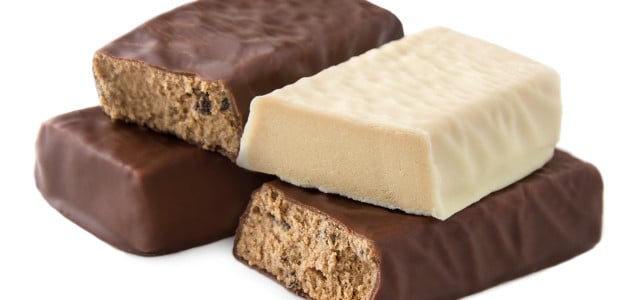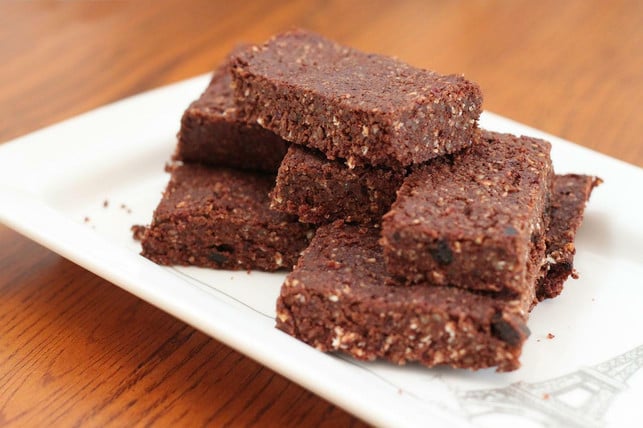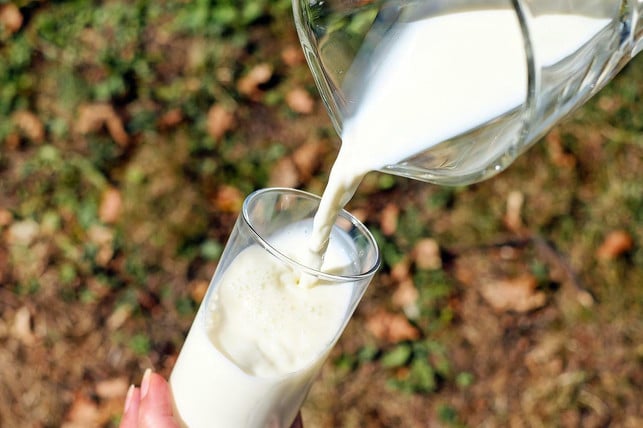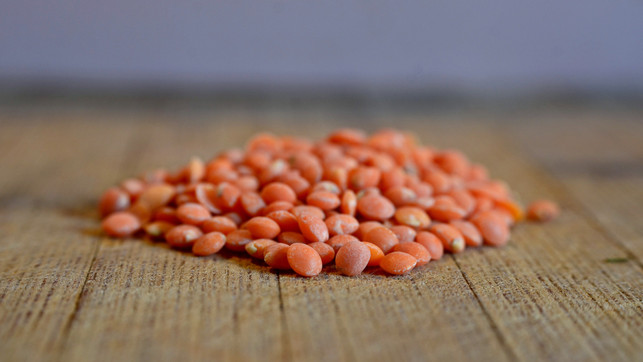
Are protein bars healthy? According to many fitness companies, the answer is. So the bars should supply us with high -quality protein and other important fabrics. You can find out here whether there is actually something on the promises.
Protein bars are part of everyday life for many sports enthusiasts. Especially when you run out of strength to build muscle and promote the regeneration of your body, they seem to be the perfect snack. But how healthy a protein bar really is depends, of course, primarily on the ingredients it contains. In addition, the question arises whether protein bars are really necessary for a balanced diet.
Are protein bars necessary?
Proteins are vital building blocks of our body that we have to absorb every day through food. According to the AOK, they are significantly involved in building muscle and, as enzymes, ensure that numerous metabolic processes can run in the body. According to the DGE, adults up to 65 years have a daily protein requirement of 0.8 grams per kilogram of body weight. For a person who weighs 70 kilograms, this would correspond to 56 grams of protein every day.
You can reach this value, for example, if you distribute 100 grams of oatmeal, 300 milliliters soy milk, 200 grams of tofu, 100 grams of chickpeas and two slices of whole grain bread over the day. According to the Bavarian consumer service and the AOK, protein bars are therefore not necessary to cover the daily protein requirement. The DGE also indicates to Stiftung Warentest that additional protein is not necessary for a balanced diet.
In addition, fitness companies repeatedly advertise that the protein requirement is increased if you regularly do sports. Protein bars are of course particularly useful to absorb more protein every day. However, this statement is also not in the case of scientific knowledge. According to Stiftung Warentest, the protein requirement is only increased in competitive athletes: increased on the inside. Even if you train for 30 minutes five times a week, you no longer have to consume protein.
According to the Bavarian consumer service, however, high -performance athletes also have to use protein bars or powder. Since you generally have an increased calorie requirement, you sometimes eat significantly more than the average per day. If you pay attention to a balanced diet, you can easily cover the increased protein requirement with natural protein sources.
So the bars are not really necessary. But are protein bars at least healthy?
Are protein bars healthy?

Whether a protein bar is healthy depends primarily on its composition. This varies from manufacturer to manufacturer. However, according to the AOK, many conventional vegan and non-vegan protein bars contain high amounts of sugar-for example in the form of glucose syrup, fructose syrup or invert sugar syrup. So they are more like a candy than a healthy snack.
Some protein bars are sugar -free and sweetened with sweeteners or sugar substitutes (such as xylitol or erythritol). How these fabrics affect our body has not yet been finally clarified. However, sweeteners in particular are connected to a number of negative health effects: this is how you mess up our feeling of satiety and hunger and increase the risk of cardiovascular diseases. So far, there is no evidence of this with sugar substitutes.
In addition, protein bars often contain added vitamins and minerals. This too is problematic – because people who consume many protein bars and similar products per day eat too much dose of different nutrients. This can cause health problems in the long run.
Are protein bars sustainable?

Many protein bars contain whey protein and other dairy products. These should guarantee the high protein content. However, dairy products are problematic due to their poor CO2 balance from an ecological perspective. This leads to a high emissions of greenhouse gases, especially when keeping beef. According to Statista, a liter of cow’s milk produces about 3.2 kilograms of CO2 emissions. In comparison: with soy milk and oat milk, this value is only 0.9 to a kilogram.
Since protein bars are high-quality products, high CO2 emissions also apply in the manufacture and the numerous necessary individual steps.
Last but not least, the milk components in bars that are not organic are most likely to come from animals from factory farming. You can find out more about this problem here: “Broken broken”: So many cows have to die for our milk every year in Germany.
With vegan protein bars, it looks a little better in terms of sustainability. So no dairy products are used here, but vegetable proteins (such as pea, soy or rice protein). As a result, the bars have a better ecological balance and do not cause animal suffering. However, the problem remains that it is highly processed products, which requires a lot of energy for production. In addition, as a consumer, you can not understand where the individual ingredients come from and whether they might have to cover long transport routes.
Protein bar: is that also healthy?
If you do not want to do without protein bars, it is advisable to make protein bars yourself. So you can make sure that you only use healthy foods and little or no sugar or other problematic additives.
When buying, we recommend that we use vegan protein bar in organic quality if possible. These often consist of nuts, dried fruits and a vegetable protein powder. Since the dried fruits provide natural sweetness, these bars often do without added sugar or other questionable additives. An organic seal also guarantees that they are free of chemical-synthetic pesticides.
However, you should note that fructose from dried fruits for the body can also be harmful to the body and is not necessarily healthier than ordinary household sugar. Therefore consume vegan protein bars only in moderation.
Better than protein bars: natural protein sources

Ultimately, vegan protein bars are not really necessary for your protein requirement. Instead, you can make sure to incorporate natural protein sources into your menu. Vegetable foods that supply you with a lot of protein are, for example:
- Whole grain cereal
-
Legumes (such as beans and lenses)
- Soy products (soybar, tofu or soy yogurt)
- Nuts
- Some vegetables (such as broccoli and mushrooms)
You can find out more in this article: Vegetable protein: These foods provide many proteins.
Read more on utopia.de:
- Brain Food: These foods are good for your brain
- Make protein shake yourself: 3 recipes
- Vegan proteins: the 5 most important sources
** marked with ** or orange underlined Links to sources of supply are partially partner links: If you buy here, you will actively support Techzle\.com, because we will then receive a small part of the sales proceeds. More information.